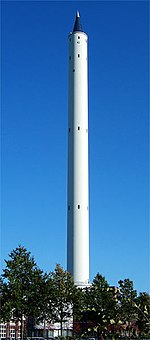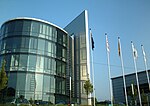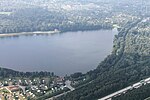University of Bremen

The University of Bremen (German: Universität Bremen) is a public university in Bremen, Germany, with approximately 23,500 people from 115 countries. It is one of 11 institutions which were successful in the category "Institutional Strategies" of the Excellence Initiative launched by the Federal Government and the Federal States in 2012. The university was also successful in the categories "Graduate Schools" and "Clusters of Excellence" of the initiative. Some of the paths that were taken in the early days of the university, also referred to as the "Bremen model", have since become characteristics of modern universities, such as interdisciplinary, explorative learning, social relevance to practice-oriented project studies which enjoy a high reputation in the academic world as well as in business and industry.
Excerpt from the Wikipedia article University of Bremen (License: CC BY-SA 3.0, Authors, Images).University of Bremen
Bibliothekstraße, Bremen Horn-Lehe (Bremen-Ost)
Geographical coordinates (GPS) Address Phone number Website External links Nearby Places Show on map
Geographical coordinates (GPS)
| Latitude | Longitude |
|---|---|
| N 53.108611111111 ° | E 8.8536111111111 ° |
Address
Universität Bremen
Bibliothekstraße 1
28359 Bremen, Horn-Lehe (Bremen-Ost)
Free Hanseatic City of Bremen, Germany
Open on Google Maps








